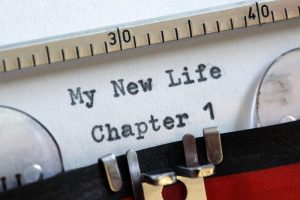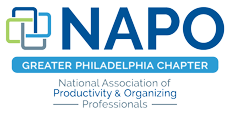 At different times in life, one finds oneself faced with the task of making life-altering changes to pave the way for new possibilities. As an organizer, I have the privilege of being with clients as they journey toward a new life and new possibilities. An inspiring vision is their guiding light and a tool box of new questions is their rudder, navigating them toward their goals and aspirations.
At different times in life, one finds oneself faced with the task of making life-altering changes to pave the way for new possibilities. As an organizer, I have the privilege of being with clients as they journey toward a new life and new possibilities. An inspiring vision is their guiding light and a tool box of new questions is their rudder, navigating them toward their goals and aspirations.
Inspired by speakers Joshua Millbum & Ryan Nicodemus, “The Minimalists”, and Marilee Adams’ book “Change Your Questions, Change Your Life”, I have been exploring the notion that one could change one’s life, its patterns, habits and outcomes simply by changing the questions we ask ourselves. Can it be that simple?
When you think about it, questions illuminate:
- New ways of thinking
- Self-discovery
- Self-awareness
- New perspectives
Questions shed light on, and offer a deeper understanding of, the choices we make and why. Dr. Adams says, “Our behavior follows our questions” and “new questions shape and direct new behaviors.”
When I began questioning myself about the “stuff” in my life, I noticed there was an innate, underlying meaning I had given to each item that was affecting my decision-making process. During one of my closet purging events, I began to hear the meanings I had assigned each item. Slowing down and listening carefully, I could hear myself arguing for each item and justifying why things should stay, saying:
- Just in case.
- I can still wear it.
- It was my mother’s.
In other areas of my home and my clients’ homes, I see items being kept for fear that the memory will be lost forever if not saved. Text books, research papers and thesis notes are symbols and trophies of accomplishments and successes representing a former self and held for posterity. Items that have recognized value are held to say something about us even though we don’t like, appreciate or use them.
Why do we give so much meaning to our stuff? Who knows? What I’ve noticed is that when the meaning we give to items remains unexamined and undistinguished, the more likely they are to stay on our shelves versus leave to create space in our lives. Asking rigorous questions and listening intently for the meaning we give to items offer us new interpretations and perspectives, and the freedom to let go.
Questions I like to ask are:
- What is the meaning I am giving to this?
- Why is this so important?
- Does this add value to my life?
Last week I spoke to someone who was facing a plumbing crisis but needed to declutter large areas before the repair work could be done. Questioning himself, he began to uncover that he was, as he called himself, “Mr. Someday.” Things he acquired and saved were for someday. When he saw something, his question was, “How can I use this, someday?” It’s not such a bad question once in a while, except what he was now facing was all the “someday” projects that never happened and instead were impeding the plumbing repairs. Armed with both a new vision to say goodbye to “Mr. Someday” and new questions to shape his actions moving forward, he was off and running to change his lifestyle and life.
How might life be better if we owned less stuff?
The Minimalists say, “Life can be richer with less stuff.” Dr. Adams’ asks, “What new questions can take us there?”
If letting go to reduce the amount of stuff in your life is your mission and you need help along the way changing your questions to change your life, find an organizer in your area. We would love to support you.
Click on the title above to learn more about the featured author.




